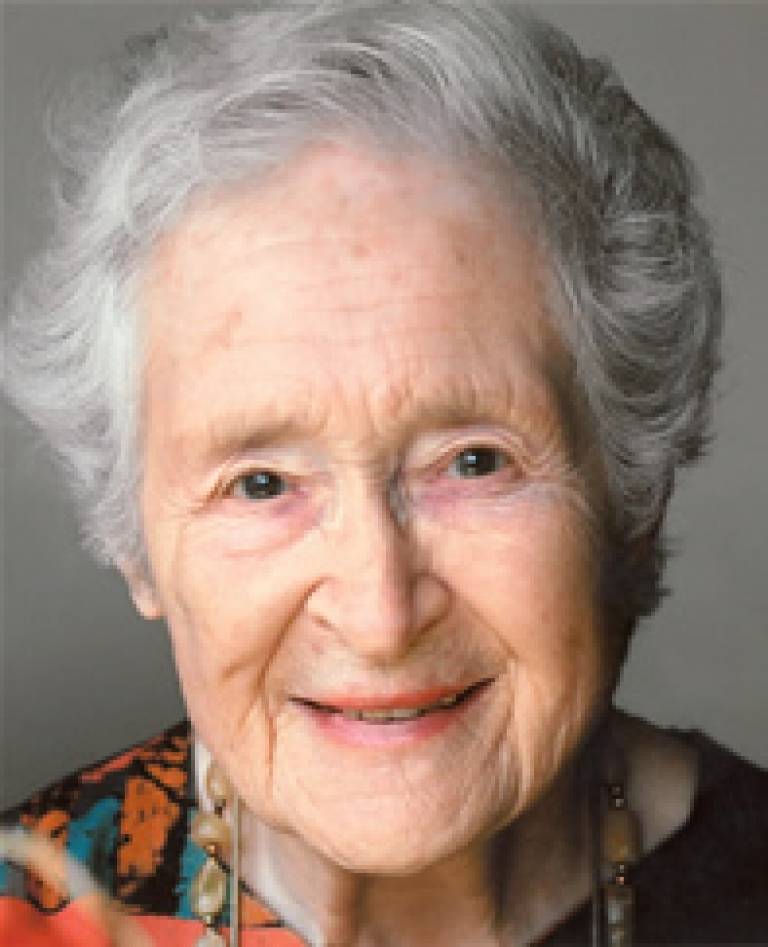Mary Douglas Memorial Lecture 2014
23 October 2014

The event is oversubscribed. For those who haven't got the ticket, you can watch it live online at: www.ucl.ac.uk/live.
We are pleased to announce the Inaugural Mary Douglas Memorial Lecture to be held at Harrie Massie Lecture Theatre, UCL on Thursday 23 October 2014 at 6pm.
The annual lecture, in memory of Dame Mary Douglas (1921-2007), is sponsored by the Royal Anthropological Institute, the School of Anthropology & Museum Ethnography at the University of Oxford, and the Department of Anthropology at UCL.
IRRECONCILABLE CONFLICTS?
Civil Wars From The Perspective Of An Institutional Theory Of Culture
Professor Paul Richards
Njala University (Sierra Leone)
Post-Cold War armed political conflicts have been called many things: asymmetric wars, insurgency, terrorism, new barbarism. These are civil wars where group values rather than national interests are at stake. Such conflicts, Mary Douglas thought, were especially hard to resolve because any compromise appears to the parties a threat to their continued social existence. What then should be the peacemaker's approach to civil wars? Douglas departed from the mainstream in pointing out that violent political conflicts are often irreconcilable through bargaining approaches. She advocated two analytical moves in such circumstances. The first was to undertake a cultural audit, in order to pinpoint the institutional roots of non-negotiable social values. The second move, as exemplified in her late work, was to return to ethnography, to understand how civil wars do eventually end. This threw a spotlight on the importance of complex (so-called "clumsy") institutional arrangements in post-conflict settlements, and drew renewed attention to ritual ordering as a means to "compose" the unprecedented social taxonomies required by such durable settlements. For Douglas, "listening to the enemy" was a way to allow radically different social taxonomies to mesh, and not a tool for bargaining-based compromise. The lecture applies this perspective to three concrete instances of civil wars and their aftermath: the Dutch revolt, the "culture wars" in France at the end of the 19th century, and the recent civil war in Sierra Leone.
For any queries about the lecture, please contact Martin Holbraad (m.holbraad@ucl.ac.uk).
Links:
- Watch live stream
- Reserve your seats
- Royal Anthropological Institute
- School of Anthropology & Museum Ethnography, University of Oxford
Image credit: www.semioticon.com
Ebola virus:
The risk of Ebola arriving in the UK is low but for anyone concerned and who would like further advice we have prepared the following:
As I'm sure you are aware, Sierra Leone is screening all travellers leaving the country and anyone exhibiting symptoms is not allowed to leave. However, with an incubation period of up to three weeks (when the individual is not infectious) there is a remote possibility that people arriving in the UK will develop ebola. Should anyone who has recently (in the last 3 weeks) been in contact with ebola develop a temperature they must be advised NOT to travel to hospitals or GP surgeries, and that they should stay in their accommodation and call 999 or 111, explaining they have recently been in West Africa. Here is a link to the information from the NHS which discusses what you should do if you think you are at risk.
www.nhs.uk/conditions/ebola-virus/pages/ebola-virus.aspx
This guidance is taken from Public Health England for FE establishments. Further details are available at:
https://www.gov.uk/government/uploads/system/uploads/attachment_data/file/355421/Ebola_advice_for_further_educational_establishments_20140911.pdf
 Close
Close

